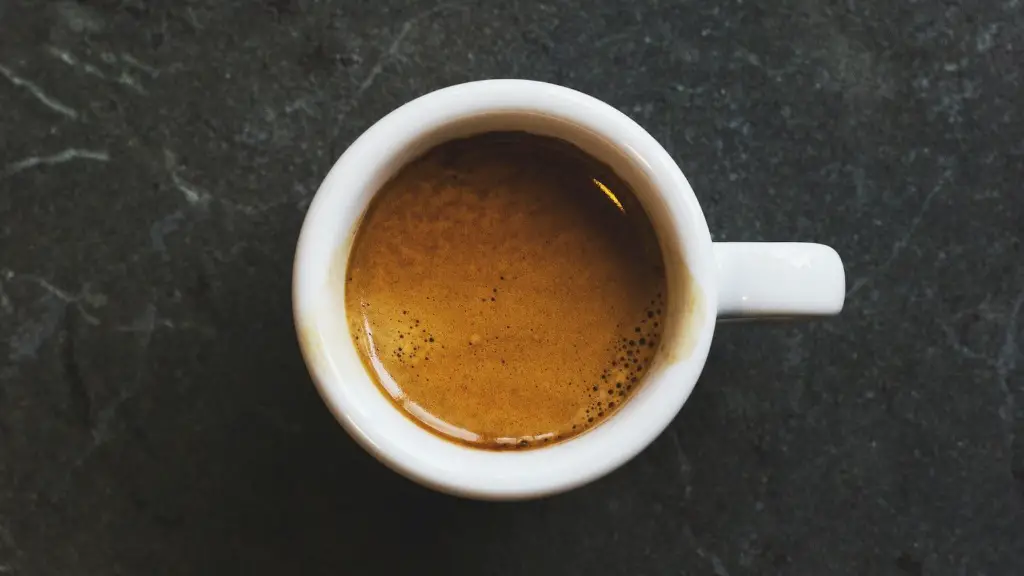Decaffeinated coffee is often a preferred choice for pregnant women who enjoy the taste and benefits of coffee but want to limit their caffeine consumption. However, it is important to understand both the pros and cons of drinking decaf coffee while pregnant.
Decaffeinated coffee still contains small amounts of caffeine, which can affect both mother and baby. Therefore, it is important to talk to your doctor or midwife about the best course of action for you. They can inform you on the recommended amount of caffeine during pregnancy, which is generally no more than 200mg per day.
Decaf coffee also contains beneficial antioxidants and other nutrients that can be beneficial during pregnancy. Some studies have linked regular decaf coffee consumption with a lowered risk of developing gestational diabetes in pregnant women.
In conclusion, while some studies suggest that decaffeinated coffee can be safe to drink in moderation during pregnancy, it is always best to consult your healthcare provider before consuming any type of caffeinated beverage while pregnant.
Effects of Caffeine on Pregnant Women
Caffeine is a stimulant found in coffee, tea, soda, and energy drinks. It is widely consumed in many countries, but pregnant women should be aware of the potential risks associated with consuming this substance. Studies have shown that consuming too much caffeine can increase the risk of miscarriage, preterm labor, low birth weight, and other complications. Therefore, it is important for pregnant women to monitor their caffeine intake and not exceed the recommended daily limit.
The American College of Obstetricians and Gynecologists (ACOG) recommends an upper limit of 200 milligrams per day for pregnant women. This amount is equivalent to one 12-ounce cup of coffee or two 12-ounce cans of caffeinated soda. Women who are particularly sensitive to caffeine may want to reduce their intake even further. Women should also be aware that certain foods and beverages contain caffeine, such as chocolate and energy drinks.
It is also important for pregnant women to know that caffeine can cross the placenta and enter the baby’s bloodstream. This means that anything a mother consumes can have an effect on her developing baby. If a woman consumes too much caffeine during pregnancy, it can cause the baby’s heart rate to increase and can lead to problems with growth or development. Therefore, pregnant women should limit their intake of caffeine whenever possible.
In conclusion, it is important for pregnant women to be aware that consuming too much caffeine can have serious consequences for both them and their unborn baby. Limiting one’s intake to no more than 200 milligrams per day is important for ensuring a healthy pregnancy and outcome for both mother and baby.
Risks of Drinking Decaf Coffee while Pregnant
It is generally safe for pregnant women to consume decaffeinated coffee, though moderation is still recommended. While the caffeine content in decaf coffee is significantly lower than regular coffee, it still contains trace amounts of the stimulant. Therefore, pregnant women should limit their intake to one or two cups per day. Additionally, some studies have linked excessive consumption of decaf coffee to an increased risk of miscarriage and preterm birth. It is also important to note that some decaffeination processes use chemical solvents which may be harmful for pregnant women. Therefore, it is best for pregnant women to avoid drinking excessive amounts of decaffeinated coffee or any other caffeinated beverage.
In summary, it is generally safe for pregnant women to consume one or two cups of decaf coffee per day. However, it is important to be aware of the potential risks associated with drinking too much and the use of chemical solvents in some decaffeination processes.
Is it Safe to Drink Decaf Coffee during Pregnancy?
Decaffeinated coffee is generally considered safe to drink during pregnancy, as long as it is consumed in moderation. Studies have found that pregnant women who drink decaffeinated coffee are not at risk of any adverse health effects. Caffeine can cross the placenta and reach the baby, but the amount of caffeine in decaf coffee is too low to cause any harm.
It is important to remember that drinking too much of any type of beverage can be detrimental, so it is best to limit your intake. Drinking lots of fluids throughout the day can help keep you hydrated and provide your body with essential nutrients. You should also make sure you are getting enough rest and eating a healthy, balanced diet.
Decaf coffee may also have some benefits for pregnant women. It can provide a source of antioxidants, which can help protect your body from free radical damage. Some studies have also shown that drinking decaffeinated coffee may reduce the risk of certain birth defects, such as cleft palate and neural tube defects.
Overall, it’s typically safe for pregnant women to enjoy occasional servings of decaf coffee. However, if you have any concerns or questions about consuming decaffeinated beverages while pregnant, it’s best to speak with your doctor or midwife.
Can I Drink Decaf Coffee While Pregnant?
When it comes to coffee during pregnancy, many women have questions about what is safe and what isn’t. Decaffeinated coffee is a popular choice for pregnant women, as it can provide a similar flavor and experience as regular coffee without the caffeine. Although there is no definitive answer as to how much decaf coffee is safe to drink while pregnant, most health care professionals advise that pregnant women limit their consumption to one cup per day.
It is important to note that decaf coffee still contains trace amounts of caffeine, which can have an effect on the body. Therefore, it is important to pay attention to how you feel after drinking decaf coffee and be mindful of any potential side effects such as nausea or heartburn. Additionally, some studies have indicated that excessive consumption of caffeine or decaffeinated beverages may be associated with an increased risk of miscarriage and other complications. Therefore, it is best to err on the side of caution and limit your intake of decaffeinated beverages while pregnant.
Overall, it is generally safe for pregnant women to consume one cup of decaf coffee per day, however it is important to keep in mind that everyone’s body responds differently and you should always consult with your health care provider before making any dietary changes during pregnancy.
Tips for Choosing the Best Quality Decaf Coffee
Choosing the best quality decaf coffee can be a difficult task. There are many factors to consider, including taste, aroma, and origin. A good quality decaf coffee should have a rich flavor, with notes of chocolate or caramel, and a pleasant aroma. It should also be sourced from a reliable source and have been roasted properly. When selecting a decaf coffee, it is important to look for beans that have been processed using natural methods, such as Swiss water processing. This process results in coffee that retains more flavor and has fewer chemicals than other types of decaf coffee.
In addition to looking at the quality of the beans, it is also important to consider any additional ingredients that may be added to the coffee. Common additives include sugar, artificial sweeteners, dairy products, and other flavoring agents. If you are trying to cut down on your caffeine intake while pregnant, it is best to avoid these additives altogether.
Finally, remember that quality is key. The higher quality beans you choose for your decaf coffee will result in a richer cup of coffee with more flavor and better aroma. Quality matters when it comes to choosing the best decaf for you!
Alternatives to Drinking Decaf Coffee in Pregnancy
Pregnant women often find themselves in a conundrum when it comes to coffee. On one hand, they want the energy boost that it provides, but on the other they are aware of the potential risks associated with drinking too much caffeine. Fortunately, there are several alternatives to decaf coffee that can provide an energy boost without the worry of excess caffeine intake.
Herbal teas such as chamomile or ginger can be a great way for pregnant women to get an energy boost without compromising their health. Herbal teas are full of beneficial minerals and vitamins and have calming properties, making them ideal for pregnant women. Additionally, herbal tea is caffeine-free and does not have any of the potentially harmful side effects that come with drinking regular coffee.
Fruit juices such as orange or cranberry juice are also great options for pregnant women looking for an energy boost. The natural sugars found in these juices can provide a quick burst of energy while also being rich in essential vitamins and minerals. Additionally, fruit juices contain no caffeine so there is no need to worry about consuming too much.
Smoothies made with fresh fruits, vegetables, and yogurt can also provide an excellent source of energy while being packed full of essential nutrients. Smoothies are a great way to get a healthy dose of vitamins and minerals while also providing an energy boost that may last throughout the day. They can be customized with various ingredients depending on individual tastes and nutritional needs, making them a great alternative for pregnant women looking for something refreshing and nutritious.
By exploring some of these alternatives to decaf coffee in pregnancy, expectant mothers can be sure they are getting the necessary nutrients without having to worry about consuming too much caffeine.
Final Words
In conclusion, it is generally safe to drink decaf coffee while pregnant, however it is important to note that the caffeine content in decaf coffee can vary from cup to cup and the amount can sometimes exceed what is considered safe for pregnant women. It is also important to be mindful of sugar, cream, and other additives when consuming decaf coffee. Pregnant women should always consult with their doctor before making any changes to their diet.
Decaf coffee can be a good way to get an energy boost during pregnancy without the risk of consuming too much caffeine. Ultimately, pregnant women should still limit their intake of decaf coffee and any other beverages in order to ensure they are not over-consuming.





